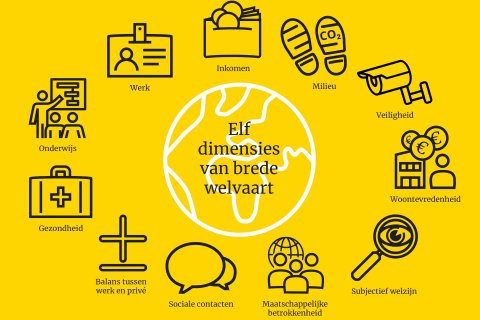How do we future-proof well-being?
Money does not make you happy, it is often said in the Netherlands. Yet we still often look at economic growth to measure our (national) prosperity. Profit is the yardstick for companies and shareholders, people are rewarded with money, and more money is often accompanied by more power, influence and appreciation. Is this capitalist approach still viable in, for example, the sustainability transition or digital information? Is well-being experienced equally by everyone? And how can we achieve a better distribution of comprehensive well-being? How can we future-proof well-being? What should we measure and how? Several Utrecht scientists are investigating these questions from different angles.

For instance, researchers at Utrecht University, in collaboration with RaboResearch, have developed the Better Well-being Index (BWI) as an alternative measure of prosperity. This indicator measures well-being on a broader level than just economic growth. Thus, unemployment, education, health, safety, happiness, housing, environment and job security are also taken into account. With this indicator, it is possible to make regional differences within the Netherlands more transparent. It also shows a clear difference between gross domestic product per capita and the Better Well-being Index.
Our experts on comprehensive well-being and prosperity
- Economic history, Organisation and Functioning of Markets, Institutions, Interaction between Economy, Society and Institutions, Long Term, Inequality, Pre-Industrial
- Ethics, Political Philosophy, Social Justice, Democracy, Corporate Democracy, Corporate Social Responsibility
- Family Sociology, Organisation Sociology
- Poverty, Biodiversity, Sustainability, Economic history, Global scale, Great Societal Debates, Economic Growth and Development, Inequality, Interdisciplinarity, International Collaboration, Long-Term Trajectories, Quantitative Datasets





